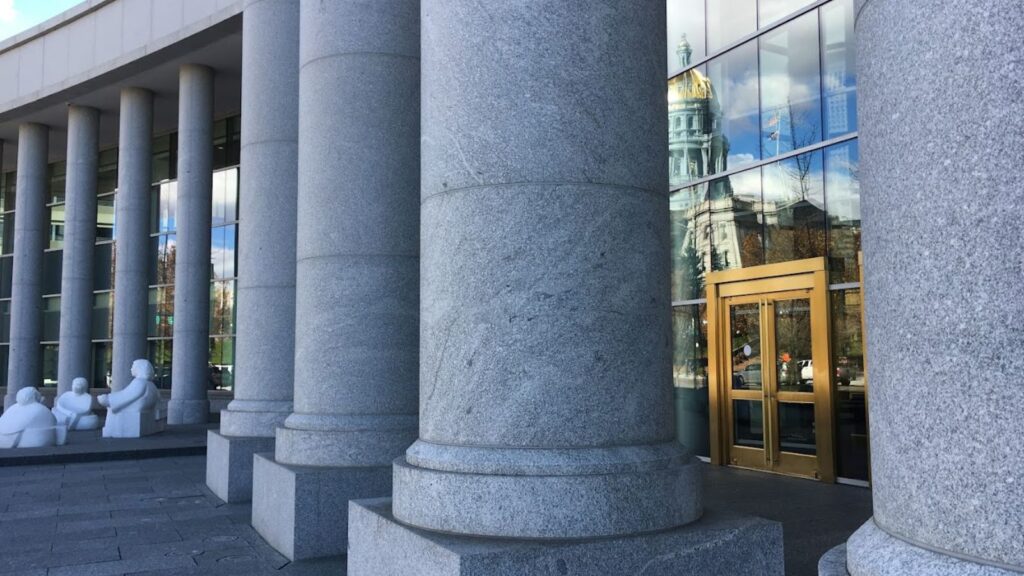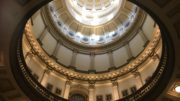By Jeffrey A. Roberts
CFOIC Executive Director
The Colorado Supreme Court will examine whether a judicially created doctrine allowing public bodies to “cure” violations of the Colorado Open Meetings Law goes against the “plain meaning” of the transparency statute and “longstanding precedent.”
The justices also announced Monday they will look at two issues in an open meetings law case the Aurora Sentinel won against the city of Aurora in the Court of Appeals last year. Additionally, the Court denied the town of Del Norte’s request to review a third open meetings ruling made by the appellate court earlier this year.
The “cure” case concerns a 2022 open meetings law violation by the Woodland Park school board, which considered a memorandum of understanding with a charter school under a vague “BOARD HOUSEKEEPING” agenda item.

A district court judge initially granted a preliminary injunction, ordering the board to “clearly, honestly and forthrightly” list future agenda items pertaining to the charter school. But the judge and the Court of Appeals later rejected plaintiff Erin O’Connell’s argument for the awarding of attorney fees because the board “effectively cured the prior violation” by discussing and voting on the MOU at a subsequent public meeting.
In a certiorari petition, O’Connell attorney Eric Maxfield asked the Supreme Court to “protect the principles of transparency” by reviewing the Court of Appeals opinion and the appellate court’s 2012 ruling establishing the cure doctrine. In that earlier opinion, Colorado Off-Highway Vehicle Coalition v. Colorado Board of Parks & Outdoor Recreation, the Court of Appeals held that a state or local public body “may ‘cure’ a violation of the OML by holding a subsequent complying meeting, provided the subsequent meeting is not a mere ‘rubber stamping’ of an earlier decision made in violation of the OML.”
The term “cure” is not used in the open meetings law, noted Maxfield, who is on the board of the Colorado Freedom of Information Coalition. Yet the 2012 opinion “opened the door to the retroactive reinstatement of formal acts taken at non-compliant meetings back to the date of the original violation,” he wrote, and based on this “misapprehension” of the law, the appellate court in the O’Connell ruling upended “decades of precedent holding such actions null and void, and incapable of being rehabilitated.”
The Supreme Court agreed to review whether the cure doctrine: 1) “contravenes (the open meeting law’s) plain meaning and longstanding precedent”; 2) applies to “intentional violations of statutory notice requirements”; and 3) precludes the awarding of attorney fees.
The cure doctrine “was never intended to enable the intentional manipulation of notice requirements to support the transaction of public business in secret,” like the Woodland Park school board’s consideration of a charter school under a “BOARD HOUSEKEEPING” agenda item, O’Connell’s petition argues. The petition also says the Court of Appeals wrongly relied on the cure doctrine to “strip prevailing party status” from O’Connell, contravening an open meetings law provision that requires the awarding of costs and attorney fees to people who successfully challenge violations.
The League of Women Voters of Colorado, Movimiento Poder and the Parents-Safety Advocacy Group submitted a friend-of-the-court brief supporting O’Connell’s petition. The open meetings law “does not allow any ‘cure’ of violations of the sunshine laws that circumvents the mandatory requirement to pay the attorney fees of those members of the public who, at their own and their families’ financial (and emotional) expense, have stepped up to safeguard and support our democracy,” wrote Katayoun Donnelly, attorney for the organizations.
The Aurora Sentinel case to be considered by the Supreme Court also partly concerns attorney fees.
Last December, in a ruling for the newspaper, the Court of Appeals ordered Aurora to publicly release the recording of an executive session in which city council members ended censure proceedings against a fellow councilor. But the three-judge appellate panel refused to award attorney fees to the Sentinel because it is not a “citizen” as described in the open meetings law.
The justices plan to review the fees issue and whether the Court of Appeals erred in deciding that the city council waived attorney-client privilege by including a general description of the executive session in a council agenda packet.
In a petition for certiorari, a lawyer for the Aurora city clerk argued that the agenda item “merely reflected Council’s informal direction to special counsel to prepare a stipulation for Council formal consideration; it did not place privileged communications at issue and did not result in a waiver.”
The Del Norte petition rejected by the Supreme Court had asked the justices to review a Court of Appeals ruling in February that the town board violated the open meetings law by censuring a fellow board member during an executive session.
Follow the Colorado Freedom of Information Coalition on X (formerly Twitter) @CoFOIC. Like CFOIC’s Facebook page. Do you appreciate the information and resources provided by CFOIC? Please consider making a tax-deductible donation.




